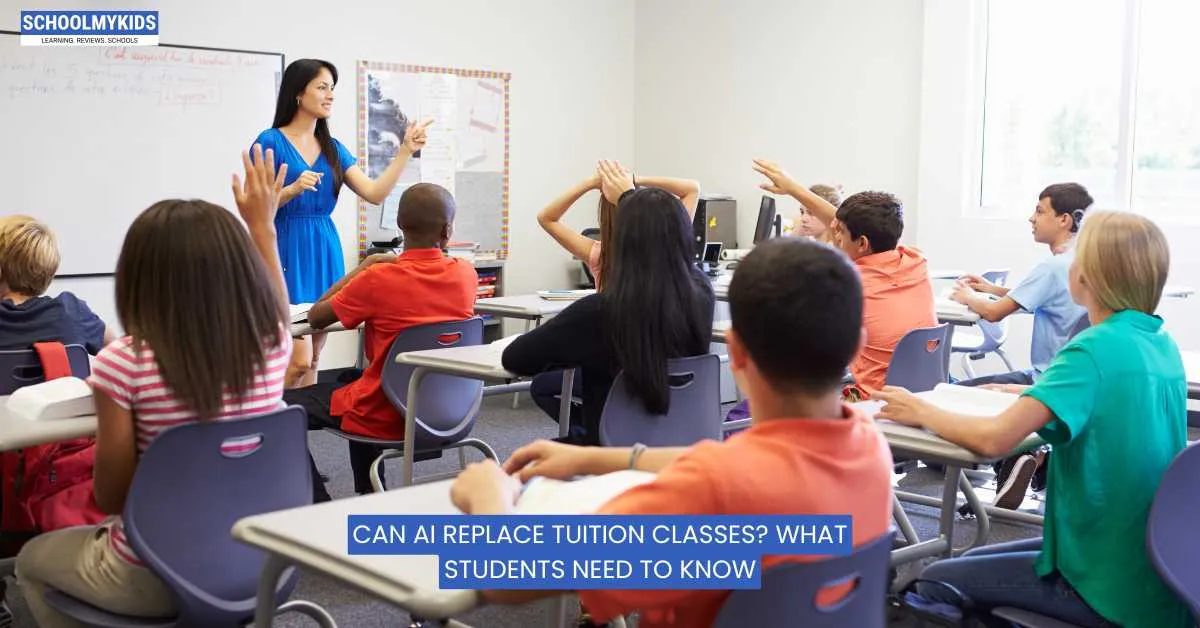The education landscape is shifting dramatically as artificial intelligence becomes more sophisticated and accessible. With AI-powered learning platforms and personalized tutoring systems gaining popularity, many students and parents are questioning whether traditional tuition classes will become obsolete. The answer isn't as straightforward as you might think.
The Rise of AI in Education
AI tutoring systems have made remarkable strides in recent years. These platforms can analyze learning patterns, identify knowledge gaps, and provide customized instruction at any time of day. Unlike human tutors, AI never gets tired, frustrated, or impatient. It can repeat explanations countless times and adapt its teaching style to match your learning preferences.
Companies like Khan Academy, Coursera, and specialized platforms are already using AI to create personalized learning experiences. These systems track your progress, suggest practice problems, and even predict which concepts you might struggle with before you encounter them.
What AI Does Well
Personalized Pacing: AI excels at letting students learn at their own speed. If you grasp algebra quickly but struggle with geometry, an AI system adjusts accordingly without making you feel rushed or held back.
24/7 Availability: Unlike tuition classes with fixed schedules, AI tutors are available whenever you need help. This flexibility is particularly valuable for students juggling multiple commitments or those in different time zones.
Infinite Patience: AI doesn't judge or get frustrated when you ask the same question multiple times. This creates a pressure-free environment where students feel comfortable making mistakes and learning from them.
Data-Driven Insights: AI can analyze vast amounts of data to identify learning patterns and optimize study strategies. It can show you exactly where you're spending too much time or which topics need more attention.
The Human Element That AI Can't Replace
Despite these advantages, tuition classes offer irreplaceable human elements that current AI cannot replicate.
Emotional Intelligence: Human tutors can read body language, sense frustration, and provide emotional support during challenging moments. They understand that learning isn't just cognitive– it's emotional too.
Complex Problem-Solving: While AI excels at structured problems, human tutors shine when dealing with ambiguous, multi-layered challenges that require creative thinking and real-world application.
Motivation and Accountability: A skilled tutor doesn't just teach content; they inspire, motivate, and hold students accountable. The relationship between student and teacher often drives persistence through difficult material.
Social Learning: Group tuition classes provide opportunities for peer interaction, collaborative learning, and healthy competition that AI platforms struggle to replicate effectively.
The Hybrid Future
Rather than a complete replacement, we're moving toward a hybrid model where AI and human instruction complement each other. This approach maximizes the strengths of both:
AI handles routine practice, immediate feedback, and basic concept reinforcement, while human tutors focus on higher-level thinking, motivation, and complex problem-solving. Students might use AI for daily practice and concept review, then attend weekly sessions with human tutors for deeper exploration and personalized guidance.
Making the Right Choice for You
Consider AI-powered learning if you:
- Prefer self-directed learning
- Need flexible scheduling
- Want immediate feedback on practice problems
- Learn well from digital interfaces
- Are comfortable with technology
Stick with traditional tuition classes if you:
- Thrive on human interaction
- Need strong accountability and motivation
- Learn better through discussion and collaboration
- Struggle with self-discipline in digital environments
- Require help with complex, creative problem-solving
The Bottom Line
AI won't completely replace tuition classes, but it's reshaping how we think about personalized education. The most successful students of the future will likely be those who learn to leverage both AI tools and human expertise strategically.
The key is understanding your learning style, goals, and needs. AI excels at providing personalized practice and immediate feedback, while human tutors offer irreplaceable emotional support, motivation, and complex problem-solving guidance. Rather than choosing one over the other, consider how both might work together to accelerate your learning journey.
The future of education isn't about human versus machine – it's about humans and machines working together to create more effective, accessible, and personalized learning experiences.








Be the first one to comment on this story.